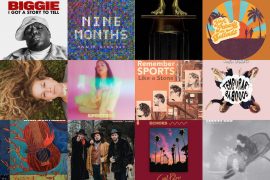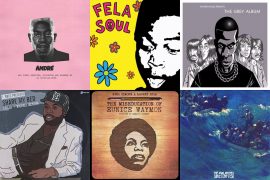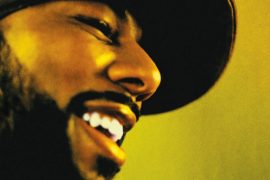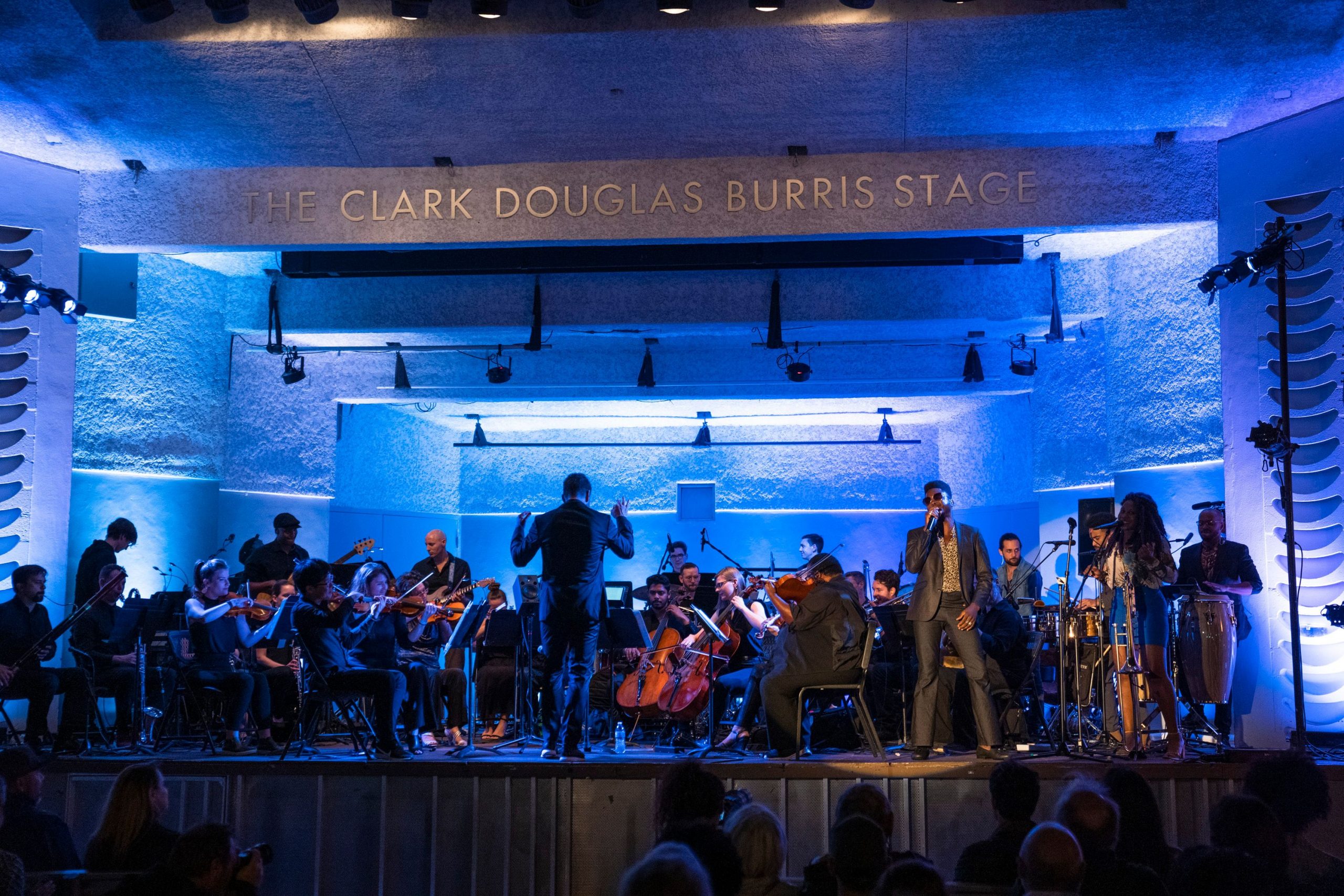Chaz Cardigan’s ‘A Year in Glassland’ is a record conceptualized from a place of maturity, heightened awareness, and, overall, the kind of musical freedom he is encouraged to not only execute in practice, but also in its final presentation and delivery.
Stream: ‘A Year in Glassland’ – Chaz Cardigan
“I lost two record deals. I got a whiplash injury two years ago making a TikTok… true story. That gave me a bunch of chronic pain and medical debt. I found out I was bipolar, and I wrote songs about all of that. And, I’m gay. That’s whatever.”
Those extremely broad, self-deprecating, and distressing statements are all excerpts from a TikTok posted January 26th of this year by LA-based singer/songwriter Chaz Cardigan as promo for his new album, A Year in Glassland (out now via AntiFragile Music).
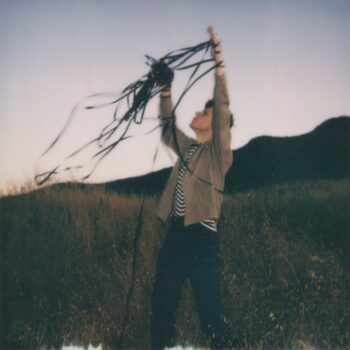
Cardigan is a highly articulate, politically and socially active, and, upon reviewing previous interviews, vibrant, nerdy extrovert primed to dive into his projects and other topics of discussion. On this occasion, he was cordial, thoughtful, and engaged, but there was something more off-kilter… guarded even, about his demeanor than was seen in previous content. Perhaps he was viewing the conversation as solely a business opportunity and decided to treat it as such. All things considered, it’s understandable due to the events of years past.
Regardless, he emerges from these events with a conceptual full-length effort that sees him dig further into his alternative rock sweet spot as a vocalist, musician, and arranger than ever before.
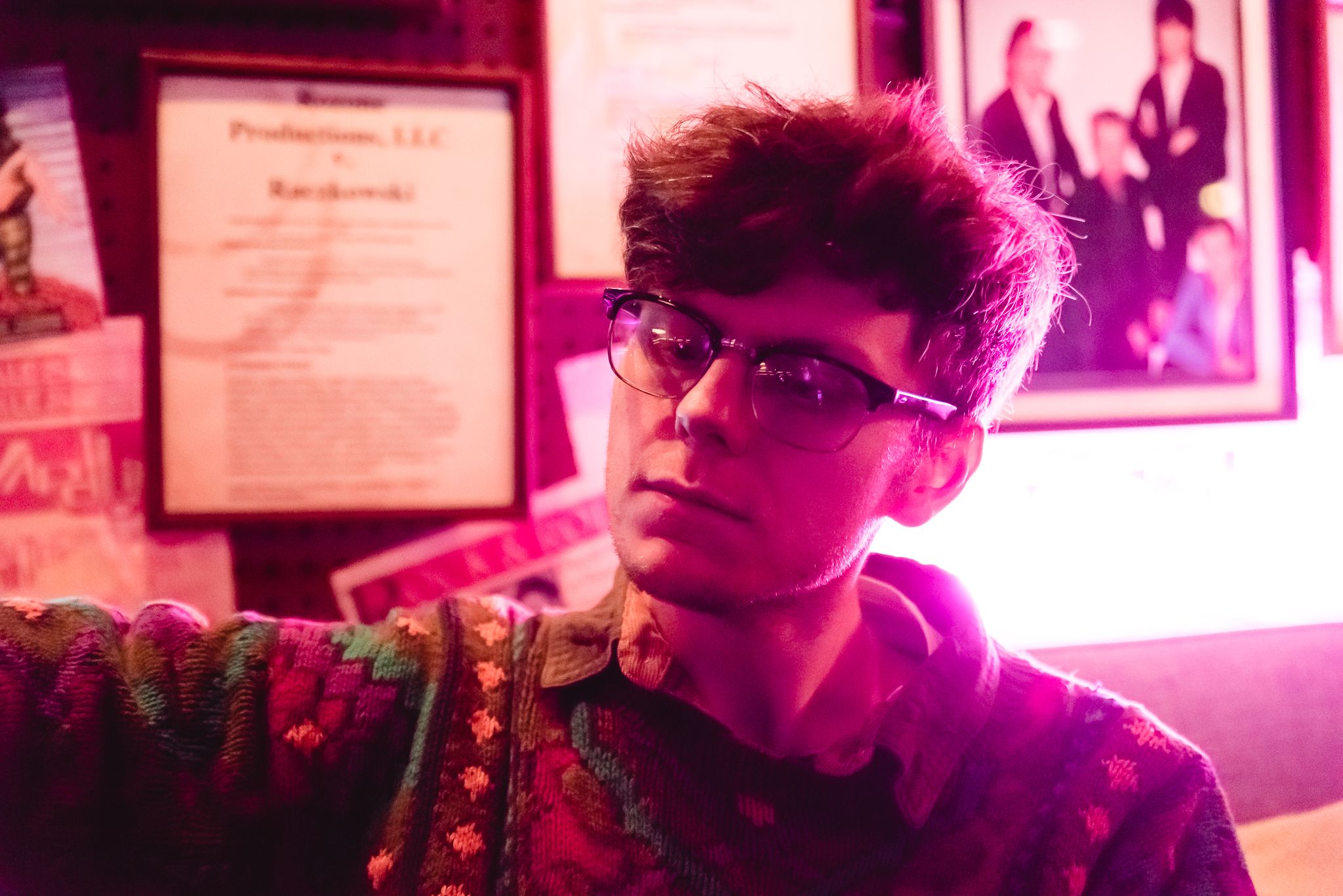
The queer element of the record, while fundamental, is not of utmost importance.
However, its inclusion, and the way the songs are presented, created an opportunity for a nuanced conversation regarding the queer dating experience. “Poison Ivy” is sung with a touch of bitterness, expressing the numbness of going through the motions in modern-day hookup culture, and “Are We Gonna Do This” takes a more apoplectic approach in the form of rudimentary Gavin Degraw-style commercial pop, addressing the lack of urgency and/or desire of queer men to allow themselves to simply FEEL anything.
I’ve been tryna’ open up these days…
Are we gonna do this, or what?
Do you love me… do you love me not?
Nothin’ feels real… does it matter at all?
“I think there is still a patriarchal element that reinforces a MASSIVE amount of conditioned self-hatred that we are playing out through the puppet show of ‘dating as transaction’,” he tells Atwood Magazine, answering from the pretext of those of the LGBTQ+ community identifying as men. “I think that so many of the societal pressures that we put on our community… are all still through the lens of patriarchy… of dominance… of power hierarchies. Self-hatred perpetuated through the obsession with body types and how long you can go before you start being emotionally intimate.”
“I’ve been making music longer than I remember having a sexuality, and that’s a dynamic I don’t think is easy to untangle,” he explains, diving into his background of self-discovery. “My defense mechanism was to make music that was maximal, but clearly influenced by queer music. I was obsessed with Lady Gaga. It was the early Obama years… the beginning of Glee. So, it was sort of impossible to be a gay kid in the Midwest and not absorb that as really… religious. I was very much out, but I was treated differently for it… so I had to assimilate in other ways. I had to bury the lede on the queerness.”
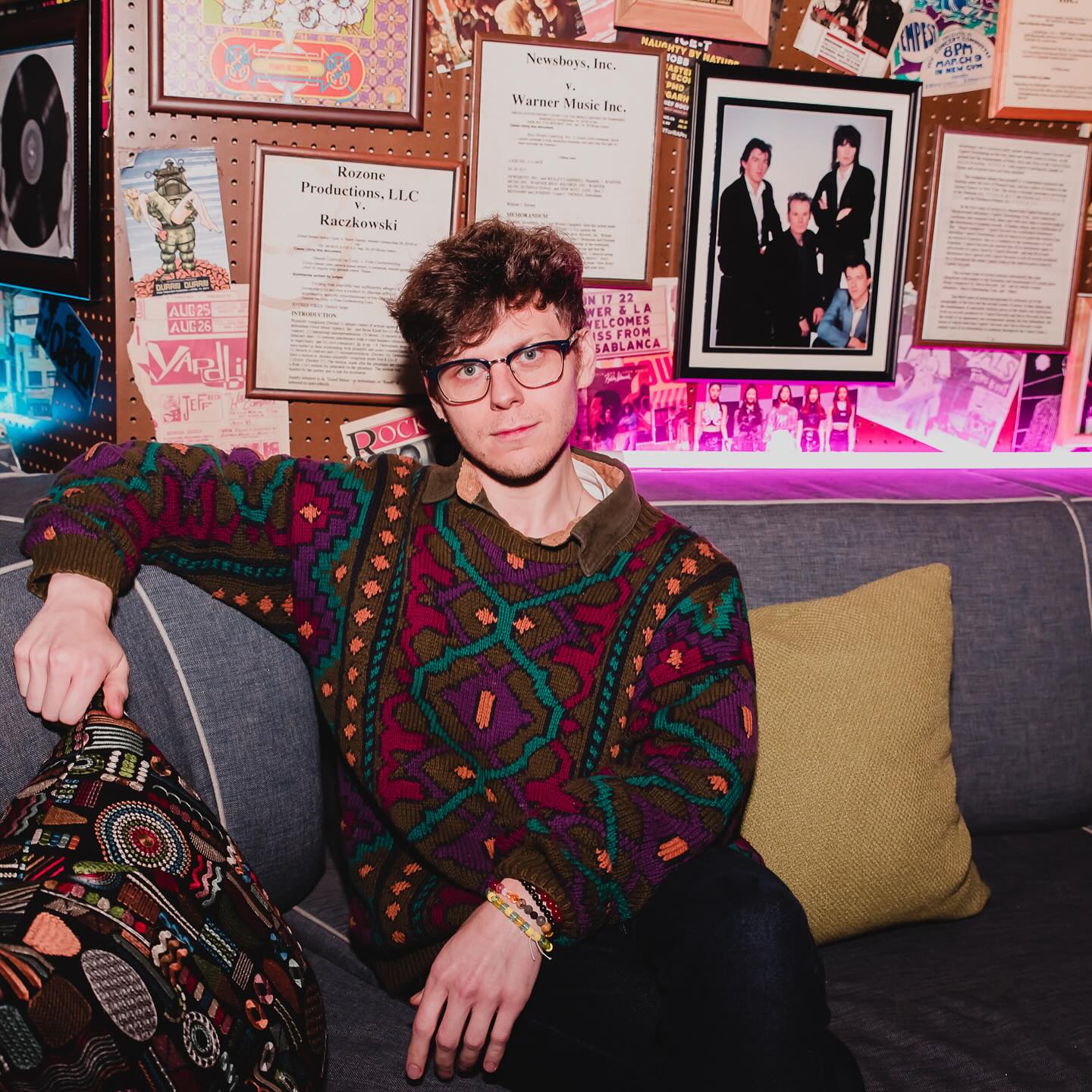
For passive listeners, the lede might still be buried.
Early songs like “Losing Touch,” “Jesus Christ I’m Lonely,” and “Not OK” fit right onto playlists of The Killers, Ben Rector, and Of Monsters and Men. Incredibly adaptable, form-fitting music with substance and a bit of a theatrical flair. He’s not trying to make the next “Padam Padam,” but he loves songs by drag queens and cites David Byrne as what he views as “the middle ground.”
As far as outreach and influence go, he, along with friend and frequent collaborator Jake Wesley Rogers, an outstanding singer/songwriter in his own right, have and continue to set an example for LGBTQ+ youth. Cardigan acknowledges and appreciates his position but argues that his choices came down to personal survival rather than an attempt at martyrdom.
Beyond the topical queer aspect of the record, A Year In Glassland is alternative and contemporary in its musical approach yet theatrical in design. The records 11 tracks materialize like a three-act play. The first act, “Diet Coke” through “Poison Ivy,” sees Cardigan processing actual reality. In the second act, “Used To Care” through “Goodyear” he fights back against the long-term effects of harsh realities. Act three, “The Rot” through “It’s Gonna Be Great (Hallelujah)” sees Cardigan come to terms with what reality is for him now.
When asked to give a name for the acts, Cardigan sat in thought for long stretches of time, but came up with “Act 1: What It Is,” “Act Two: What It’s Not,” and “Act Three: Where It Goes.”
The placement of certain songs within their respective acts does not limit their overall contribution, as sets of songs interact with and are thematically affected by each other. “Used To Care,” which Cardigan very carefully labels as the “centerpiece,” and not the “thesis statement,” of the album, is closely linked to “Goodyear” and “The Rot,” the latter arguably the actual mission statement of the project and the most auspicious overall. “Diet Coke” and “Rashomon,” the former written with Wesley Rogers and the latter with UK-based writer Henry Brill, seem to be intertwined musically. “Diet Coke” is the rambunctious little cousin while “Rashomon,” more musically progressive, contains a kind of Elton John “Saturday Night’s Alright For Fighting” manic energy.
The pairing of “Used To Care” and “The Rot” as the two most critical aspects of the record is warranted.
Cardigan himself labeled the former AS the centerpiece while referencing the latter, therefore it could likely be viewed both ways, but he had his own perception of that idea. “If anything, the album is about just trying to exist as a person in a culture that is decayed, or decaying… pick your word,” he says, specifically notating “Used To Care“ in this instance. “It’s that weird dance we’ve all been put in by the last decade or so, starting from, say, the Snowden leaks, or, if you want to go back a little further, it’s the recession or 9/11.”
“The Rot” is, simply, a declaration of what is doing, and what has done, the decaying. Musically, it’s Billy Joel’s “We Didn’t Start The Fire” in the style of early 2000s Linkin Park:
Record heat (streaming now)
Plastic beach (burn it down)
Premium (trauma bond)
Rainbows on a pizza box
Be yourself (pick a side)
Data dump (advertise)
Double down (one percent)
Nothing ever changes but the rent
To get to this album, he had to endure the inability of his previous labels to understand who or what he was. As an artist, this was exceedingly frustrating. As a businessman, he understood. “Companies who are beholden to stakeholders are not equipped to present something unproven,” he says. “Something unproven has to work independently on its own and then companies can see the metrics and justify exploiting it. The way that I handled it, which was wrong, was that I tried to do everything. It was all ‘good.’ It was all ‘interesting,’ … but being talented doesn’t owe you success. Being talented is the prerequisite to playing the politic game in the music industry. I was talented, I just didn’t know what I was trying to say. I just thought, ‘Oh, my talent is what is interesting.’ It’s not.”
In a more recent TikTok, posted February 25th, Cardigan posed the question of whether music journalism has become “too polite.” He questioned if writers are too afraid to critique an artist’s music for fear of burning a bridge… damaging the relationship. The honest answer is… yes. Most are.
As it pertains to this record, the dryness of the “Diet Coke” vocals being seen as, no pun intended, stale, is not detrimental. Neither are the misguided handclaps that disrupt the groove of “Rashomon,” the fact that “Are We Gonna Do This” concluding at the 3:21 mark would have been more musically satisfying than at 3:25, or that certain choices within the hook of “Oakblood” conjure up feelings of Demi Lovato’s “Cool For The Summer.”
The fact is that “Cling” is a breathtaking song, front to back. The last 40 seconds of “Are We…” are modern electronica perfection in the form of a live band feel. The “Hey kids, look at me!” section of “Used To Care” is done with a wonderful amount of grit and machismo. All of that, and more, mixed with the idea that this music alone led to an incredibly human discussion, should be enough to warrant a writer’s discretion to separate harsh critiques with the genuine desire to push an artist’s story forward.
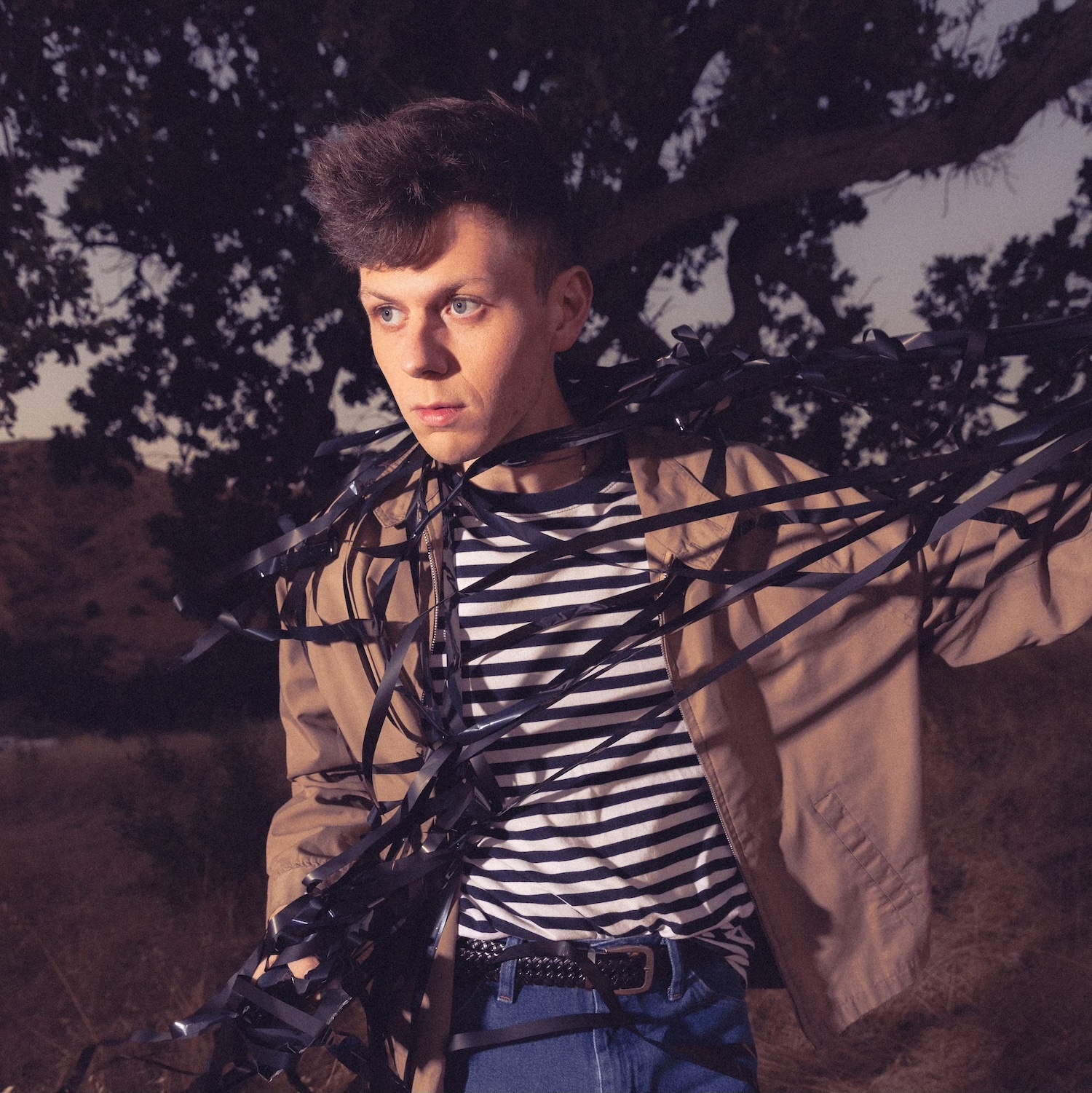
Critic proof or not, Chaz Cardigan is proud of this record.
“I have fought so hard to make any sort of body of work, and I am so proud that THIS is the one that got out,” he says. “I don’t expect it to blow up. To be the biggest record in the world. What I would like is that over the next year, two, or ten years, it finds its audience and finds its niche. I want it to be the thing people think of when they think of my name.”
— —
:: stream/purchase A Year in Glassland here ::
:: connect with Chaz Cardigan here ::
Stream: “Poison Ivy” – Chaz Cardigan
— — — —

Connect to Chaz Cardigan on
Facebook, Twitter, TikTok, Instagram, Patreon
Discover new music on Atwood Magazine
© courtesy of the artist
:: Stream Chaz Cardigan ::

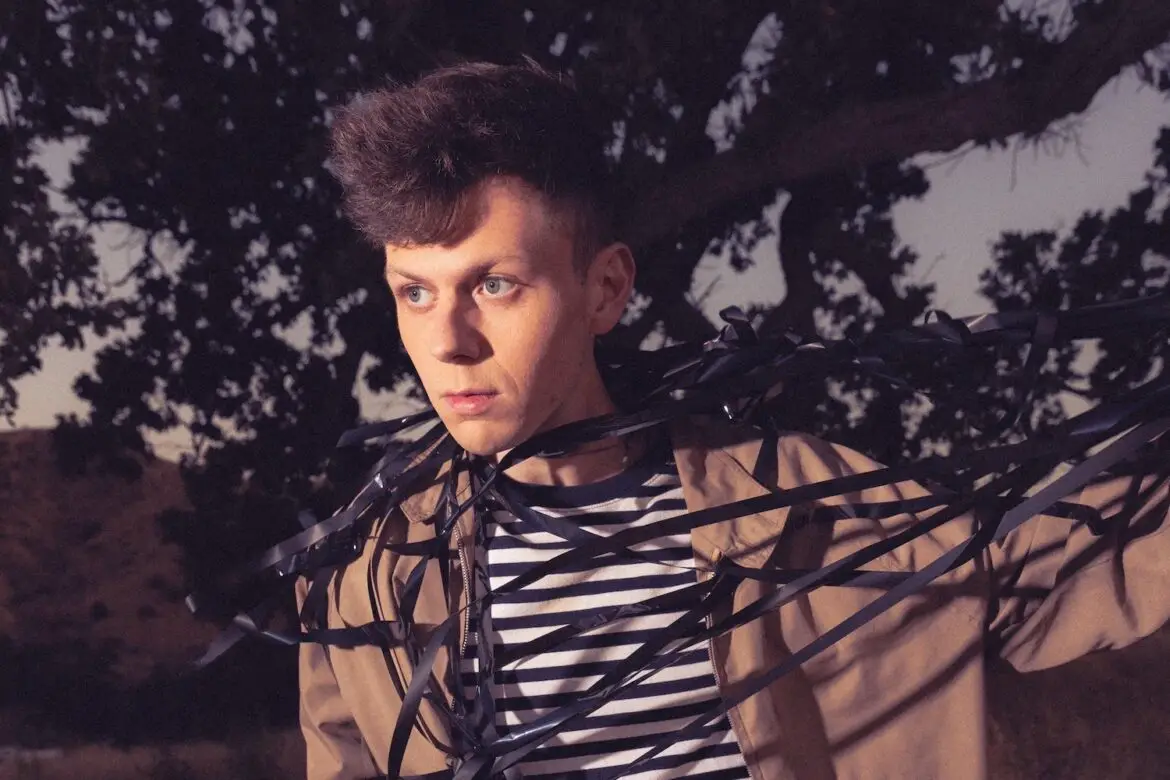
 © courtesy of the artist
© courtesy of the artist
